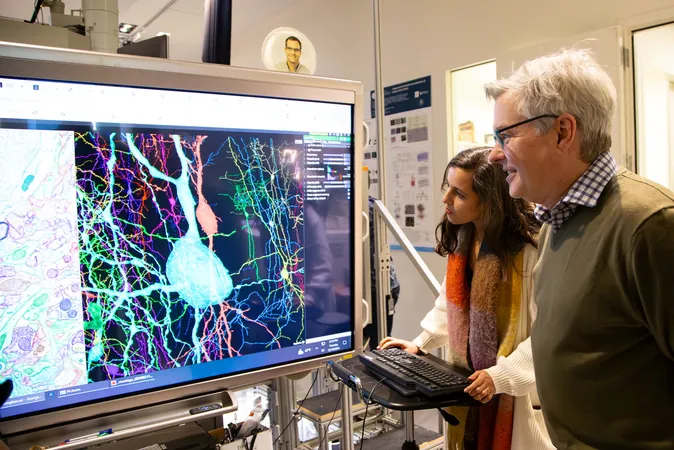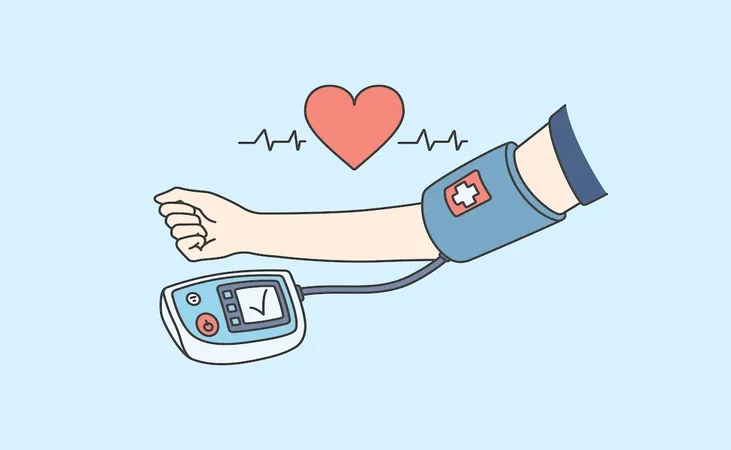
Unmasking Adult ADHD: The Hidden Struggle
2025-04-11
Author: Noah
ADHD: Not Just a Childhood Condition
Attention-deficit/hyperactivity disorder (ADHD) was long considered a childhood issue, but many adults carry its weight well into their years. Recent revelations highlight how this condition often explains persistent struggles in adult life.
A Transformative Diagnosis
For many, receiving an ADHD diagnosis can feel like a lifeline. Take Tamara Rosier, for instance, who believed she was simply 'not cut out' for academic honors during her high school years. After her diagnosis, she found a new narrative that helped her understand her challenges.
The Voices Behind the Diagnosis
Rosier is the founder of the ADHD Center of West Michigan, where she helps individuals navigate their symptoms. "Diagnosis isn’t a label; it’s an explanation," she emphasizes.
The Digital Age: Blessing or Curse?
With platforms like TikTok exploding in popularity, awareness of adult ADHD has surged. However, not all information is accurate. Psychiatrist David Goodman highlights that recent evaluations showed nearly half of the top TikTok videos on ADHD were misleading. "It's crucial to verify the source of any information before diving in," Goodman warns.
Understanding the Symptoms
ADHD manifests in various ways: from struggles with focus and organization to impulsive behavior. To qualify as ADHD, adults must exhibit five or more symptoms that started in childhood and persist into adulthood.
The Genetic Connection
Interestingly, about 75% of ADHD cases have a genetic basis, with environmental factors contributing as well. This means it often runs in families.
How ADHD Operates in the Brain
Neuroscientist Amy Arnsten reveals that ADHD involves a slowed development of the prefrontal cortex, which governs executive functions like attention and decision-making. Changes in neurochemistry can turn the brain into a chaotic environment.
Complex Diagnosis Challenges
Diagnosing ADHD in adults can be tricky, especially since many conditions share overlapping symptoms. Other mental health issues like depression or anxiety can cloud the diagnosis.
The Need for Informed Professionals
Goodman notes that many clinicians have historically overlooked adult ADHD. This has begun to change, thanks to rising awareness from the media suggesting it’s among the most prevalent psychiatric disorders in adults.
Navigating the Diagnostic Maze
For those seeking a diagnosis, the journey can be daunting. The tedious forms and extensive paperwork can overwhelm someone already struggling with ADHD symptoms.
Documenting Your Experience
Rosier advises anyone who suspects they may have ADHD to start documenting their symptoms. Engaging a trusted friend or family member for their observations can also be invaluable when discussing your experiences with healthcare providers.
Empower Yourself
Understanding ADHD is crucial. By openly tracking your symptoms and communicating effectively with professionals, you can navigate the challenges of adult ADHD and reclaim control over your life.









 Brasil (PT)
Brasil (PT)
 Canada (EN)
Canada (EN)
 Chile (ES)
Chile (ES)
 Česko (CS)
Česko (CS)
 대한민국 (KO)
대한민국 (KO)
 España (ES)
España (ES)
 France (FR)
France (FR)
 Hong Kong (EN)
Hong Kong (EN)
 Italia (IT)
Italia (IT)
 日本 (JA)
日本 (JA)
 Magyarország (HU)
Magyarország (HU)
 Norge (NO)
Norge (NO)
 Polska (PL)
Polska (PL)
 Schweiz (DE)
Schweiz (DE)
 Singapore (EN)
Singapore (EN)
 Sverige (SV)
Sverige (SV)
 Suomi (FI)
Suomi (FI)
 Türkiye (TR)
Türkiye (TR)
 الإمارات العربية المتحدة (AR)
الإمارات العربية المتحدة (AR)